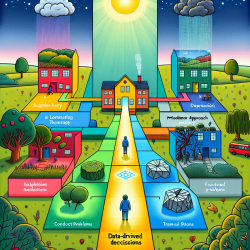As a practitioner working with children with medical complexity (CMC), you understand the unique challenges these cases present. The research article, A qualitative study of health care providers’ perceptions and experiences of working together to care for children with medical complexity (CMC), offers valuable insights that can enhance your skills and improve care delivery. Here, we discuss key findings and practical steps to implement these insights in your practice.
Key Findings from the Study
The study identified four primary themes impacting the care of CMC:
- Family Capacity: The ability of families to navigate the health system is crucial. Medical and psychosocial complexities, along with varying levels of health literacy, significantly affect family capacity.
- Health Care Provider Capacity: Providers often face limitations in skills, time, and resources. Specialized training and adequate time for coordination are essential.
- System Capacity: Fragmentation of care and poor communication among providers are major barriers. Integrated care models are needed to address these issues.
- Communication: Effective communication among health care providers and with families is critical. Delays and miscommunication can lead to adverse outcomes.
Practical Steps for Practitioners
Based on these findings, here are some practical steps you can take to enhance your skills and improve care for CMC:
1. Enhance Family Support
- Provide families with clear, comprehensive information about their child's condition and care plan.
- Empower parents by involving them in decision-making and care coordination.
- Offer resources and training to help families navigate the health system effectively.
2. Improve Provider Training
- Seek out professional development opportunities focused on managing CMC, including training on psychosocial aspects.
- Advocate for interdisciplinary training programs that enhance coordination skills among health care providers.
3. Foster Integrated Care Models
- Collaborate with other providers to create seamless care pathways for CMC.
- Implement care coordination roles within your team to ensure comprehensive, continuous care.
4. Enhance Communication
- Establish clear communication channels with all providers involved in a child's care.
- Use technology, such as electronic health records, to ensure timely and accurate information sharing.
By implementing these strategies, you can improve the quality of care for children with medical complexity and support their families more effectively. For more detailed insights and recommendations, we encourage you to explore the original research paper.
To read the original research paper, please follow this link: A qualitative study of health care providers’ perceptions and experiences of working together to care for children with medical complexity (CMC)










